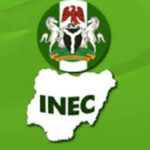Abia State has officially joined a growing number of Nigerian states asserting regulatory control over their electricity markets, following the Nigerian Electricity Regulatory Commission’s (NERC) approval of its request for autonomy.
In a statement on Wednesday, NERC confirmed it had issued an order transferring regulatory oversight of the electricity market in Abia State to the newly formed Abia State Electricity Regulatory Authority (ASERA), in line with the Electricity Act (EA) 2023, as amended, and Nigeria’s Constitution.
“In compliance with the amended Constitution of the Federal Republic of Nigeria and the Electricity Act 2023 (Amended), the Nigerian Electricity Regulatory Commission has issued an order to transfer regulatory oversight of the electricity market in Abia State from the Commission to the Abia State Electricity Regulatory Authority,” NERC said.
The move allows Abia State to assume control over intrastate electricity generation, transmission, distribution, and trading, empowering it to tailor energy policies to local needs, attract investment, and address electricity access challenges.
While the decentralisation allows states to manage power supply within their boundaries, NERC retains its role as the central regulator for interstate and international electricity operations, including large-scale generation and transmission, cross-border supply, and system operations.
With this development, Abia joins the ranks of states such as Lagos, Kaduna, Oyo, Enugu, Imo, Edo, Ekiti, Ondo, Ogun, Kogi, Niger, and Plateau, which have all taken steps to establish independent electricity regulatory frameworks.
Lagos State has already operationalised its own market through the Lagos Electricity Regulatory Commission (LERC), licensing independent power producers and promoting off-grid solutions. Similarly, Kaduna and Oyo states are pursuing independent regulatory paths to improve reliability and support rural electrification and industrial growth.
According to NERC, Abia State fulfilled all legal requirements, including the formal notification and request for authority transfer. Following this, the commission issued a Transfer Order with specific directives.
Among them, the Enugu Electricity Distribution Company (EEDC)—which currently serves the region—has been directed to incorporate a subsidiary, EEDC SubCo, dedicated solely to intrastate electricity distribution in Abia. The incorporation must be completed within 60 days from June 25, 2025.
The new subsidiary is expected to apply for and secure a licence from ASERA to operate legally under the state’s new electricity regulatory framework. All transition processes are to be finalised by December 24, 2025, according to NERC.
This transfer marks another major step in Nigeria’s broader electricity sector reform, aimed at decentralising control, boosting local accountability, and improving energy access through competitive and state-led solutions.









